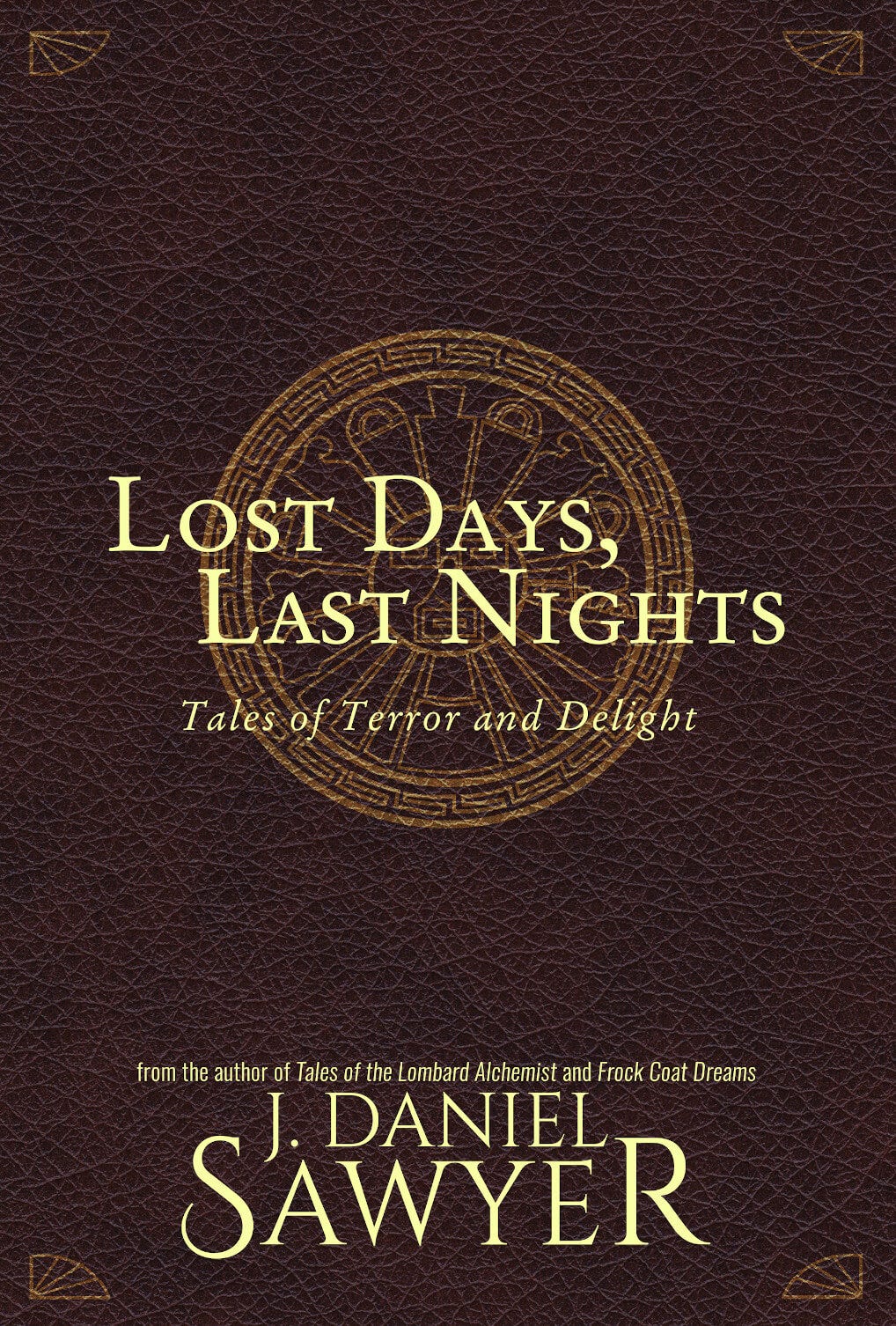Okay, okay, fine. I know it’s a cliche. I know that it’s so cliched that I might be required to turn in my Gen X membership card for the offense of being predictable, but I can’t avoid it.
I’ve gotta do a year in the review, because I write about history, and I suspect that future historians are going to reckon 2024 as one of the defining years in the changeover from the Post-WW2 world to…well, whatever’s coming next.
How was 2024 “defining” and historical? Don’t know. You can only make those judgments once you’ve got some distance from the day-to-day noise, and my time machine is on the fritz.
But the highlights have been pretty damn spectacular. We had the most disorganized and tumultuous presidential contest since America became a world power—a contest which may not be over yet. We saw the Middle East blow up into the third front of what will likely be remembered as World War Three. Europe went from “threatening collapse” to “actually imploding.” The American film industry actually noticed that making shitty movies isn’t good for the bottom line. The US Government tried to seize the AI industry before it could get off the ground. A revolutionary libertarian government in historically Pernoista-socialist-fascist Argentina started getting results. And that’s just a handful of the dozens of world-historical political, cultural, and martial events that happened in 2024.
And on top of all that, this was the year I decided to make Substacking a regular thing (hello, future historians—send me a temporal telegram telling me I at least earned a footnote!).
For me, though, this year wasn’t dominated by the headlines. This was the year I got pretty damn cozy with the Grim Reaper (more than once) and learned (the hard way) exactly how fragile the economy really is…and yet it was one of the best years of my adult life.
Some of that is down to you, the people I’ve met through this column. Some of you became pen pals, some became friends, and some of you literally saved my life during one of those brushes with death.
I don’t write much in the way of topical political stuff, which hurts me with the Substack algorithm, but I nonetheless have had the honor of writing a few pieces that caught the cultural winds and made their way across the Internet, so I figured that this would be a good place to chronicle the year’s best-loved articles.
The Personal and Poetical
Two of the most-read articles this year have also been the two that are most personally important to me.
The first, Healthy Living Can Be Deadly, tells the tale of my near-death experience last April, where I discovered that something from my early childhood had literally come back to kill me. The result: A startling new appreciation for the previously-unseen forces that shaped my life, and some info that might help you avoid dying for an exceedingly stupid reason.
The second, We Also Walk Dogs, shows what happens when both breadwinners in a family get downsized during the same week.
The tales touched on in both of these posts are still unfolding, and you’ll find follow-up articles on both topics in your inbox this January. What’s it like to live without chronic pain after a lifetime with it? What’s it like to live without a chronic income after a lifetime with it? Stay tuned, and find out!
On the other hand, some stories that have been fully told are the fiction shorts I shared over the course of the year.
The first story comes from my new collection Lost Days, Last Nights. This apocalyptic epiphany centers on a 19th century rubber baron’s ill-advised trip up the Amazon river. Read all about his knuckle-whitening discoveries in the rip-roaring adventure tale called The Shoes I Wore This Morning.
For Halloween, I brought you a pair of creepy puzzlers in audiobook form from my Tales of a Lombard Alchemist series.
The Empty House follow the ambitious quest of a lonely, brilliant young architect and the achingly empty that works to ensnare him.
In Sunday Morning Giraffe, we answer the mystical question “how far will a bookworm go to secure good reading time?” Demonic rats and creepy pawnshops also feature.
Art and Maker Stuff
As you might expect from someone who releases fiction on Substack, I have been known to dabble in the arts. I’ve written north of thirty books, and I’ve also earned a crust or two working as a filmmaker, cinematographer, director, audio producer, and photographer. Try as I might, I can’t get away from the arts.
No surprise then that, no matter how much I talked about history, geopolitics, or whatever else, the arts kept popping up in the articles I wrote in 2024.
And why shouldn’t it? Art is the lifeblood of the human species. Forget “entertainment,” the images we use and the stories we tell shape our cognition, give us practice in finding and making meaning, and (literally) set the parameters for our civilizations.
I talk about what it takes to make art and to benefit from it in Unleashing Mystery and Madness and Enter the Dream, respectively. I explored the relationship between creativity and nature in A Life Less Urbanary. I also dug deep into how ancient stories show up in the strangest places in my article about the best Alien film in the essay A Subversive Masterpiece.
Then, around the midpoint of the year, I turned my eye to the physical arts in my Build Series. Y’all went bananas over my tour of the world of hammers in Dumber than a Bag of Hammers. For the Fourth of July, I talked about how a welder and a forge and a pick-up truck gave me a new perspective on my native country in Going Native in America.
I also took some time out, here and there, to explore how cliches can show us unexpected truths about life, especially in What it Means to “Throw Like A Girl” and Are You Fluent in English?
And, finally, I tackled the problem of why contemporary “elite” culture seems so goddamn ugly, and how this problem has deep roots in our cultural history, in the article Why Must The Anointed Despise Beauty?
JRR Tolkien
It’s been a big year for Lord of the Rings—there was another season of that embarrassing Amazon show, the highly-online New Right tried co-opting Tolkien (just as the New Left did in the 1960s), and now there’s a new animated film about crazy horses or something.
Somewhere in the midst of all that, I got my knickers in a twist about the Peter Jackson Lord of the Rings films…well, technically I got annoyed enough to write about something that’s been bugging me since the premier of The Two Towers. But, one way or another, I decided that it was time to throw a few turds on the worshipful fire around these films. I’m seeing a lot of young authors make the same mistake Jackson did in their own fiction, so it’s time: We Need to Talk about Frodo.
The article generated enough buzz, especially among my Catholic readers, that I wound up writing a follow-up arguing that Tolkien was one of the literary greats, ironically, because he failed in his greatest ambition. Find out why in The Irony in Tolkien’s Triumph.
Human Relations and Cognition
Once upon a time, in my misspent youth, I got about 9/10ths of a degree in therapisting. Thankfully, I remembered that the whole reason I went for the degree was to help me develop better characters, not to actually sit on a couch and listen to the problems of strangers, so I saved myself a whole semester of tuition costs and gobs of incidental income.
That didn’t stop me from obsessing over the way people think, though, and it showed up in some very popular articles I devoted to cognition, relationships, and social dysfunctions.
In Team Players and Groupthink, I explored the dual-nature of human group dynamics, and how it influences everything from families to cults to economies to civilizations.
In Why Geniuses are Idiots, I shared some of what I learned in Silicon Valley about how intelligence (of the IQ sort) works, what it’s useful for, and why it’s no hedge against error.
In my four-plus decades on this spinning cyan globe, I’ve never seen relations between the sexes get as poisonous and self-righteous as they did this year (and that’s saying something; I grew up in the Religious Right near a cadre of Berkeley feminists).
As I am unable to watch a dumpster fire without wanting to extinguish it with gasoline, I took a look under the hood of intrasexual competition and intersexual resentment in The Hatred that Binds Us. This article goes hand-in-hand with two others that you all liked: Missing the Point of Romance: Mate Hunting that Works, which compares today’s disastrous dating market to similar circumstances in the past (TL;DR, all hope is not lost, and there are some good tricks that still work). I also tackled the expectations we have all inherited about how such relationships work, and how to manage them, in The Progressive Myth of Monogamy.
As the stench from this year’s political contest rose high enough to make my mountain hideout smell like politics, I took some time out to examine the difference between rage-baiting and effective political victory in Victory and Vengeance.
Which leads me to what I consider the year’s most important article. There is something driving our cultural craziness that runs deeper than mass immigration, political factionalism, and demographic collapse. How to Orient an Organism tackles this factor, which underlies everything that everybody from every political tribe is freaking out about. We’ve all got our hand on the same elephant; this is what the entire elephant looks like. We’ve got more in common than you might think.
How Societies Work in Disaster Scenarios
2024 saw one of the most intense solar storms on record—something I got a hell of a view of here at my mountaintop hideaway:
At the time, there was a lot of chatter about how the storm might be strong enough to knock out the electronics that run all the systems on our fragile little planet. I explored the implications of this in my article about the solar storms, When Nature Gets Nasty. I also delved into what would happen if civil war took the US off the global map in A Brief, Bright Fire in the Dark. Both of these scenarios would, one way or another, result in spectacular amounts of chaos and the resurgence of local, disaster-level sociality (just like Hurricane Helene did, late in the year). I examined the historical precedents for such situations, and what factors really matter for survival and rebuilding civilization, in A World of Warlords.
And, to end on a hopeful note with one of the most popular articles of the year, I gave Boomers their due for putting us in the position to survive any of these disasters in How the Hippies Saved the World, which tells how a small group of “crazy” Boomers decided that—contrary to the wisdom of their own age—there might just be something of the past worth preserving after all.
History
My main gig here at Unfolding the World will probably always be history for a pretty simple reason:
If you don’t know where you came from, it’s hard to know where you’re going.
Learning history, though, is a fraught field indeed, so I laid out what I consider to be the gold standard of learning and judgment in Understanding Before Thinking. I then went on to post a couple first-hand pieces on bits of history that more-or-less defined today’s world. I wrote about the experience of 9/11 (and its relationship to Fight Club) in Shadows on the Pavement, and what it was like to live through the end of the Cold War in The Speaking Pebble.
My interest in history isn’t merely a personal affectation. We stand in the mist of a change in ages every bit as profound as the shift from the medieval to the modern, and more profound than the change from the Age of Empires to the Age of American Hegemony.
This change in eras means an inevitable change in our cognition, our cultural software, and our political expectations. We are experiencing Years When Decades Happen, struggling with our attitudes about the morality of political violence and The Last American Illusion, all while dealing with a re-shaping of political norms and rhetoric as the result of The Rise of the Player-Character (a norm-shift that has the potential to define the political landscape for the next century).
And since all of this comes in the midst of the falling away of the Baby Boomers and the strange, uneven presence of their successors, Generation X, I did a couple articles which help explain how these two generations see the world in nearly opposite terms. Hopefully this makes them a bit more intelligible to the younger folks in the game. For the Boomers, I tackle the problem of Boomer nostalgia in The Myth of the Myth of the 1950s, while the apparent schizophrenia of the highly-cynical-yet-highly-idealistic Gen X mind is explored (with the help of a few movies) in Lost in the Generational Noise.
Politics and Technology (if you insist)
I really try to avoid politics in this column, but in an election year—or an epochal transition—that isn’t always possible. Fortunately (for my peace of mind, at least), I’m a bit of an anti-partisan by nature. I don’t like political parties, and I don’t belong to one, because my interest in politics is orthogonal to the nature and psychology of the party system in the United States.1
So when I do write about politics, I try to look either higher (at “larger issues” rooted in human nature) or lower (at the underlying historical currents that are setting up the next waves that will hit us as the world unfolds).
On the former score, I took the opportunity of the election year to explore the question of What Makes a Good Ruler? Earlier on in the year, I also wrote about how parenting styles change the way democratic systems function in Try This At Home.
On the latter score, I wrote The Big AI Bluff about the fundamental con that LLM AI technology is based on. I also discussed the way demographics have pushed us to a point where labor movements are becoming politically relevant again in The Return of Labor? (an article that proved a bit prescient considering the recent public tiff within the Republican party regarding the H1B visa system).
And, in an article that aims both high and low, I used a notorious press conference early in the year as am excuse to expose the jeopardy that our political system (both national and global) is currently in, and how that’s related to the sudden increase in high-profile wars around the world. See A Simple Moment of Weakness for more.
Wrapping up the Year
It’s been a fantastic year writing this column. The conversations I’ve had, the new friends I’ve made, and the provocative requests I’ve gotten for article topics have kept my head hopping and my life moving even in the midst of what has been one of the most difficult and harrowing years of my adult life (both personally and civilizationally).
As you might have heard on Notes, X, or in my article We Also Walk Dogs, I’m now relying fully on your generous support to keep my family alive on this remote mountain outcrop. Whether you’re paying to support this Substack, or reading the hell out of my books, or contacting me directly to hire me for tutoring, editing, graphic design, a/v production, and blacksmithing work, the only reason I’m still here and not living on the dole is because of you who read this column. This situation is likely to persist for a while, so if you have anything you need doing, please don’t hesitate to drop a comment below or to email me at dan at jdsawyer dot net.
2024 has been a year to remember. 2025 is already shaping up to be more interesting, more tumultuous, and—at least on this Substack—more filled with off-beat articles aimed at making the world a bit more intelligible, at bringing beauty to the surface, and at finding the meaning and fun here at the portal between historical epochs.
May your new year see new horizons open up before you, and new sources of hope springing anew for you and yours!
In other words, the things that I care about have political implications, but no party particularly serves the ends I care about, nor are they likely to even after the current shake-up is done. My interest in politics is primarily ecological—I wish to understand how the political ecosystem works so that I can more effectively survive it.














This is a message from the future. You have earned your footnote! Happy New Year.